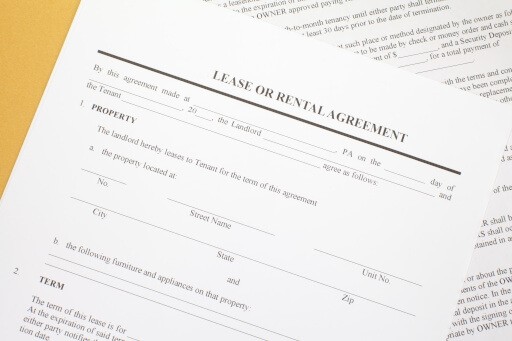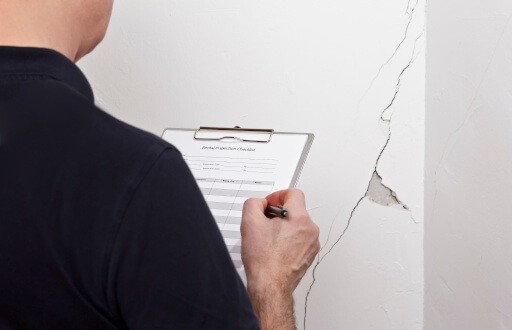A signed tenant should bring you relative peace of mind. Unless they’ve signed a month-to-month lease, you’ve secured a stable source of income for the agreed upon time, be it 6 months, 12 months, or more. You can expect most tenants to stay for the entire term of their lease, but like most instances of landlord-tenant interactions, life happens. A new job, housing costs, or just general well-being can get in the way of a binding lease agreement, so what should you do if your tenant wants to break the lease?
Is Your Tenant Responsible for the Remainder of the Lease?
A lease is a binding agreement that’s supposed to protect both parties: you, the landlord, and the tenant. In the case of the lease term, the tenant is protected from being removed from the rental before the term is up, and landlord is protected from tenants leaving early. Furthermore, your tenant agrees to pay rent for the entire lease term, albeit in monthly (or the agreed-upon) increments. So let’s say your tenant agreed to a 12-month lease, and left after eight months. Are they still liable for the remaining four months of rent?
This answer depends on your state and local laws. In most cases, yes, the tenant can still be held responsible for the remaining rent while you look for someone to take their place. In some states, you’re not required to find a new tenant at all, allowing you to hold the original tenant responsible for the entire term of the lease agreement. Again, it’s important to check the laws in your individual state and location, so do that first.
When Is My Tenant Not Responsible for the Remaining Rent?
There are a few instances that would necessitate breaking a lease in which your tenants would be free from paying the remainder of their rent.
Your Tenant is Called for Military or Active Duty
Federal law allows people in the military who receive orders to deploy or move to break their lease early, be it residential or business. This rule is called the Servicemembers Civil Relief Act, and the law applies to people in the armed forces, the activated National Guard, the National Oceanic and Atmospheric Administration (NOAA), and the U.S. Public Health Service.
Under the law, your tenant is required to give you at least a 30-day notice if they’re leaving for military reasons, even if they have time left on the lease. Some states have individual stipulations that relate to the act, so check your local laws first if you’re unsure.
You Fail to Provide a Safe Living Space
It is your duty as a landlord to provide a habitable, safe place for your tenants. Your rental must provide heat, hot water, working plumbing and electrical systems, and a general environment that doesn’t constitute a health hazard.
If your rental lacks the necessary facilities and doesn’t conform to the appropriate building codes, your tenants may be within their right to terminate the lease.
You Fail to Respect Your Tenant’s Privacy
We understand that your rental is special to you. Maybe it was your home too at one point, but sentiment aside, once your tenant signs the lease and begins paying rent, there’s an agreed-upon level of privacy that now exists. You can’t just show up to your rental unannounced, regardless of the fact that it may be your property. Unless there’s an emergency, you’re required to give your tenant(s) at least 24 hours’ notice before entering the unit. That number may change depending on the state, so be sure to review your local laws and check your individual lease.
It is within your tenants’ rights to express concern with any situation that interrupts their living situation. So if they feel like you’re encroaching on their privacy they may issue a written ultimatum stating that if you don’t stop showing up unannounced, they’ll break the lease.
Set Clear Guidelines for How Your Tenant Can Break the Lease
Like we mentioned earlier, your lease is designed to protect you and your tenants, so there’s no sense in making a potential lease annulment even more difficult. Lay out a comprehensive, easy-to-understand clause so that in the event of an early lease termination, they can do so easily and without confusion. You may even want to include a clause about early termination fees. This allows your tenant to pay a set fee, break the lease, and walk away without staying on the hook for remaining rent payments. These fees usually equate to two months’ worth of rent, so depending on how quickly you find a new tenant, this can either work in your favor or the original tenant’s.
Decide If You Want to Sublease
Subleases can be hit or miss in terms of the benefit to you, the landlord. In some cases, the tenant breaking the lease may already have someone in mind to sign on. However, that candidate may be less than ideal when it comes to your requirements for new tenants. If you decide to allow a sublet, make sure you outline the rules in your lease and add that tenant on just like you would any other lessee. Don’t cut corners on screening. You might be antsy to fill the vacancy in your rental, but hastiness in the application period can come back to bite you. Apartments.com makes it easy to screen tenants, get the information you need, and find a qualified renter fast. Unlike our competitors, who use various third-party resources to collect information, we partner with TransUnion to provide you with screening reports for evictions, credit, and criminal history. Another feature you’ll find only on Apartments.com is support for co-signers, guarantors, and co-applicants. If you need more information to make a decision, you can request supporting documents from potential tenants directly on our platform. Get all the information you need to find the right tenant quickly and easily.
Make Sure Your Tenant Gives You Notice in Writing
Even before you get into the details of how to handle a tenant who is breaking the lease, make sure you have written — no, text messages don’t count — notice from your tenant that indicates the date in which they gave notice and when they plan to vacate the premises. This is to protect both you and them.
Renting is never easy. It can be especially nerve-wracking when you’re looking at an empty unit and no one to fill it. These things happen. Tenants find new jobs, have to move, or sometimes find a rental that better suits their needs. But if you have a well-written lease that addresses these situations, you won’t be out of a tenant for long. So remember, be understanding, and hopefully with the guidelines we just laid out you’ll be in a good position to handle a tenant who wants to break their lease.











